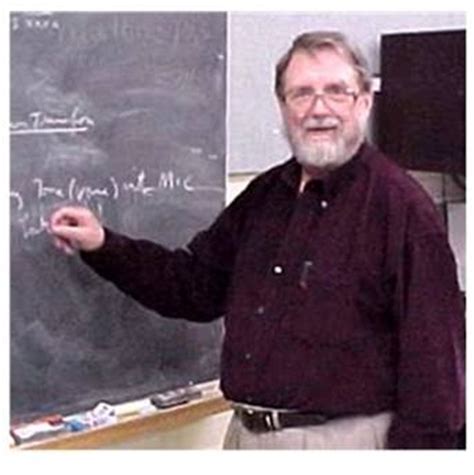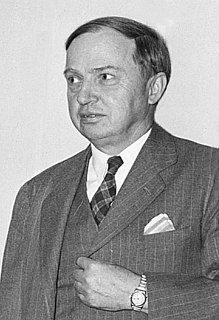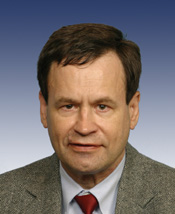A Quote by Peter Medawar
It is a common failing-and one that I have myself suffered from-to fall in love with a hypothesis and to be unwilling to take no for an answer. A love affair with a pet hypothesis can waste years of precious time. There is very often no finally decisive yes, though quite often there can be a decisive no.
Related Quotes
[Coining phrase "null hypothesis"] In relation to any experiment we may speak of this hypothesis as the "null hypothesis," and it should be noted that the null hypothesis is never proved or established, but is possibly disproved, in the course of experimentation. Every experiment may be said to exist only in order to give the facts a chance of disproving the null hypothesis.
But I should be very sorry if an interpretation founded on a most conjectural scientific hypothesis were to get fastened to the text in Genesis... The rate of change of scientific hypothesis is naturally much more rapid than that of Biblical interpretations, so that if an interpretation is founded on such an hypothesis, it may help to keep the hypothesis above ground long after it ought to be buried and forgotten.
The first objection to Darwinism is that it is only a guess and was never anything more. It is called a "hypothesis," but the word "hypothesis," though euphonious, dignified and high-sounding, is merely a scientific synonym for the old-fashioned word "guess." If Darwin had advanced his views as a guess they would not have survived for a year, but they have floated for half a century, buoyed up by the inflated word "hypothesis." When it is understood that "hypothesis" means "guess," people will inspect it more carefully before accepting it.
However the machine would permit us to test the hypothesis for any special value of n. We could carry out such tests for a sequence of consecutive values n=2,3,.. up to, say, n=100. If the result of at least one test were negative, the hypothesis would prove to be false; otherwise our confidence in the hypothesis would increase, and we should feel encouraged to attempt establishing the hypothesis, instead of trying to construct a counterexample.
Cartier-Bresson has said that photography seizes a 'decisive moment', that's true except that it shouldn't be taken too narrowly...does my picture of a cobweb in the rain represent a decisive moment? The exposure time was probably three or four minutes. That's a pretty long moment. I would say the decisive moment in that case was the moment in which I saw this thing and decided I wanted to photograph it.
This constitution we designate by the word genotype. The word is entirely independent of any hypothesis; it is fact, not hypothesis that different zygotes arising by fertilisation can thereby have different qualities, that, even under quite similar conditions of life, phenotypically diverse individuals can develop.





































